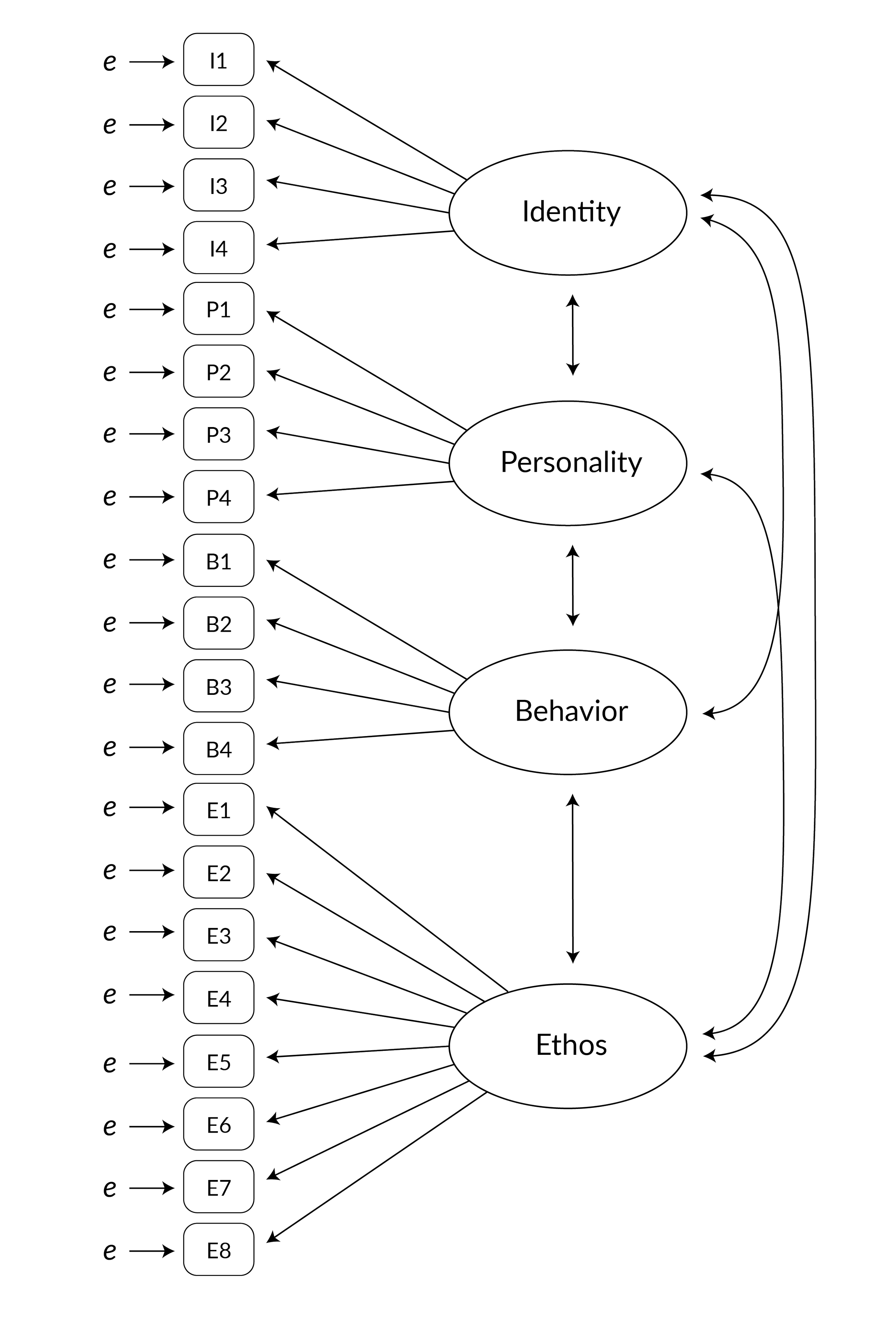When Brands Become Human: Why Authenticity Is Your Brand’s Most Valuable Asset
Graphic by: Kelli Binnings, Image Credit: Canva
Let’s be real … in a world oversaturated with perfectly curated marketing and AI-generated everything, people are craving something that feels human. But what does that mean, really? What does it mean to be human as a brand?
That’s exactly what inspired my dissertation study into brand authenticity, a research project designed to understand what makes brands feel truly authentic, how we can measure that authenticity, and why it matters so much to audiences, especially in industries where credibility and trust are foundational.
First, authenticity needs a rebrand …
Authenticity has lost its spark, its meaning. It's become one of those everyday words that people use to incite feelings of realness without actually understanding its real power. It’s become a word for boardrooms, social media platforms, and marketing pitches to sell rather than be a marker of truth and alignment. You can just say you’re authentic; you have to prove it by living it.
Through this study, I wanted to bring authenticity back to its roots, the basics of what it truly means to be genuine, aware, accountable, and aligned in who we are, what we represent, and how we represent it. Being authentic is knowing and owning who you are while honoring the person (and brand) you’re evolving into. It’s learning how to use feedback, market changes, and new information in a way that contributes to who you are as a brand (business) rather than simply packaging and selling products or services that “people want.” I see authenticity as a filter by which people and brands can collectively shape their identity, personality, behavior, and moral foundation as they continue to grow.
Authenticity is constantly guiding you, internally (evolving with you) and externally (within your audience’s perception of you). When you have internal clarity, authenticity becomes your marker and north star for determining what and who is “for you” as you grow.
“Brands, like humans, are seen as partners in shaping who we are by what (and who) we buy from.”
Brands, like humans, are seen as partners in shaping who we are by what (and who) we buy from. We don’t want to be associated with anything that feels inconsistent or performative; we want meaning and truth.
Being perceived as authentic is powerful because it is a feeling that is earned, observed, and respected. Still, it requires clarity and understanding at a foundational level before you can grow with it, which is exactly what led me to this research.
Why I feel this research is needed …
While branding books and marketing pros have long talked about authenticity, most of the research has focused on the consumer perspective aimed at purchasing decisions and creating brand loyalty. And while both of those are extremely important and certainly part of the equation, I wanted to focus on the relationship side of business, the value and partnership exchange that happens in Business-to-Business (B2B) relationships.
The truth is, business relationships trade value in a similar way. We are all consumers in some capacity, satisfying either personal or professional desires, making B2B relationships not all that different, just on a different (and larger) scale. They begin with one-on-one interpersonal relationships founded on an exchange between general likability, trust, and mutually beneficial growth.
In B2B, you’re not really selling a product or service; you’re promising a partnership, making trust, loyalty, and authenticity key players in how you “do” business. This research aimed to understand not just the outcome of authenticity, but rather what actually shapes it within these exchanges. I wanted to explore what inspires it and if we can measure it.
I wanted to understand where the impact of authenticity truly starts from within a brand and potentially how we can nurture and embody it.
“The main goal of this research is to identify the key factors that foster authentic engagement, so that businesses everywhere (leaders, teams, and those they serve) can build meaningful (and profitable) relationships.”
For this pilot study, I partnered with a case study brand in the health and wellness industry to understand what shapes authentic outcomes from within a brand, digging into its internal team and brand culture, its leadership styles, and the business partners it serves.
The main goal of this research is to identify the key factors that foster authentic engagement, so that businesses everywhere (leaders, teams, and those they serve) can build meaningful (and profitable) relationships.
So, I started with the question …
Can brand authenticity be meaningfully measured from within a brand by studying its identity, personality, behavior, and ethos?
The Original Hypothesis: The Brand IPBE Model
I’ve observed many patterns in my 15+ years of working in brand. From team behavior and leadership styles, to the coming and going of certain personality types, to shifts in brand purpose and identity, all of which have impacted the “perceived authenticity” of the brand. Good or bad, the impact was palpable. I wasn’t quite sure how to define it or, better yet, attempt to measure it, until learning how to study experiences (thanks, grad school!) and diving headfirst into the mounds of research papers on brand.
This study concept took shape after weeks of unpacking those observations and research, leading to this proposed Brand IPBE model and its four measurable pillars:
Identity: What the brand stands for, its core values, and how it shows up visually and verbally.
Personality: The brand’s collective and embodied human-like traits: charisma, confidence, relatability, etc.
Behavior: The collective actions that prove a brand lives its values.
Ethos: The moral compass behind the brand; its purpose, integrity, and community contribution.
Original factor loading model still under exploration
Through a mixed-methods approach, I combined a custom-built survey with 67 valid responses from health industry pros (unfortunately, not quite enough to stress test the validity of the model in full, but I’m not discouraged.)
In addition to the survey, I collected data from in-depth interviews with leaders, team members, and customers, along with a 5-day ethnographic observation inside the brand’s offices, including daily diaries for reflective thinking.
To be clear, this wasn’t just a vibe check. It was a serious, grounded effort to understand authenticity from all angles: analyzing what people say, feel, and do, and how the collective identities, personalities, and behaviors shape brand perception in the market and within teams.
Tall order, I know.
What makes this research so interesting is its focus on the people: the collective minds, personalities, identities, behaviors, experiences, etc. that create and sustain a brand. Authenticity is perceived at every level … the parts make up the whole … so studying the 3 core levels of leadership, team, and customers, was key to measuring the bigger picture. This is an evolving process as new people come in and contribute to how a brand is experienced.
This is why I’m passionate about creating a brand authenticity measurement tool: to understand what factors and at what level authenticity is most valued, leading to increased trust, loyalty, and long-term growth.
“This research is about studying the people: the collective minds, personalities, identities, behaviors, experiences, etc. that create and sustain a brand.”
TLDR … Key Findings
While the original four-part (IPBE) model didn’t fully hold up statistically (likely due to sample size), something powerful still emerged:
A three-part model still worked!
Identity, Personality, and Ethos held strong as measurable factors. Behavior overlapped with the others, suggesting it might be a reflection of those traits rather than a standalone pillar, but revisiting the question structure and increasing the sample size could provide further support for behavior as a measure.
Identity matters most.
Out of all the dimensions, identity was rated highest. People want brands that clearly know who they are and act in alignment with that, consistently and confidently. This is no surprise, as we expect the same from our personal relationships, right? In the context of a brand, a strong (known) identity means more opportunity to connect, attract, and grow your core audience.
Ethos and personality go hand in hand.
There was a surprising overlap between these two, suggesting that a brand’s values and its “vibe” are deeply linked. Translation? Your brand can’t perform its values without truly living them in practice. Brands that virtue signal or perform authenticity don’t last long because people know when they’re being played.
Leadership visibility builds trust.
In interviews and observations, team members and customers emphasized how approachable, service-driven leadership shaped their perception of the brand. That’s personality and ethos in action.
Authenticity can be stretched thin during growth.
Founder-led brands are highly relatable but difficult to scale. Leadership only has so much time and energy to go around. During periods of rapid growth, tension between who the brand is and who it’s becoming can trigger dips in morale, brand confusion, and even customer concern; all signs that authenticity is being tested. Scaling a leader's voice through content and culture expansion is the best way to maintain brand authenticity, because time and accessibility inevitably change.
What this means for your brand … If you’re building a brand today, especially in wellness, coaching, or consulting, this research is a reminder that:
People buy from people, regardless of business model (B2C or B2B). They experience a brand through the individuals who represent it. When a brand knows its identity, engages its personality, and embodies its ethos through the actions of its team, people tend to trust more, become advocates, and stay loyal, even during messy growth phases.
And if you remember nothing else, remember this …
Authenticity = Emotional Currency
Brand authenticity is collective and multi-dimensional: rooted in identity, shaped by personality, and validated through ethos.
Internally aligned brands perform better externally. They inspire loyalty, trust, and connection.
You can’t fake the feel of a brand. It lives in your team, your leadership, your community, and yes, your day-to-day decisions, conversations, and actions.
Authenticity is not a descriptive word; it’s a lived experience that is earned, observed, and respected.
What’s next?
This study was just the beginning.
I plan to continue to build on this research by:
Reimagining the survey questions with deeper research-backed questionnaires
Expanding the sample size with a longer-running study (let me know if you’re interested in learning more and how you can help 🙏)
Refining the measurement tools and meaning behind the data collection method
Exploring longitudinal data on how brand authenticity evolves over time
While I know I have my work cut out for me, with more data, I truly believe I can fine-tune a practical framework any brand can use to measure, maintain, and deepen its authenticity from the inside out. (Idk, this could be my next book!)
In closing, if you want a brand that feels real, start on the inside. Get clear on who you collectively are, show up with purpose, and lead with authenticity. Because in the end, we’re all in the people business and people want something real, meaningful, and something (someone) to believe in.
If you’re interested in learning more or helping with this continued research, send me an email! I’d love to get you involved.
And if you’re looking for more ways you can drive influence and impact through your brand, download this quick read of an ebook, “Transforming Brand Perception: 7 Actions to Change the Way People See Your Brand.”


